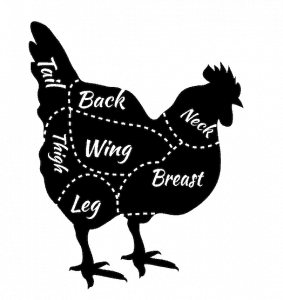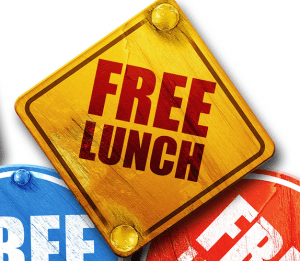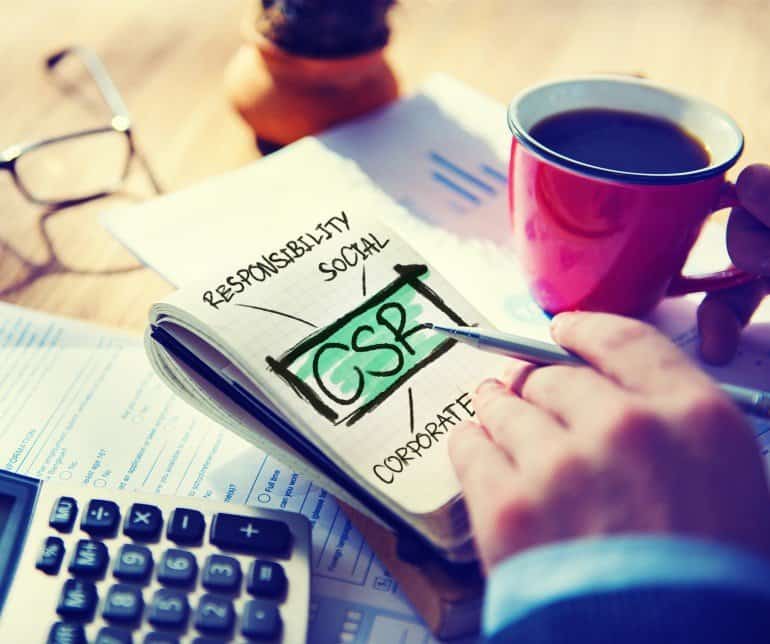Many organizations know when they pull their clients’ heartstrings with a great corporate social responsibility (CSR) campaign, they’re also loosening their purse strings, and making themselves look good. By aligning their brand with a cause or campaign, products get promoted along with principles, and usually a tax write off in the process.
See how these eight companies found a way to drive change and boost profits at the same time, by helping everyone from local homeowners, to baby chickens, and disenfranchised voters.
 1) Perdue Consumers and animal rights groups are demanding more transparency in how food animals are raised and treated. Perdue hopes its new chicken welfare campaign delivers. The program, titled “2016 and Beyond: Next Generation of Perdue Commitments to Animal Care”, says the family-run company will ensure chickens are raised in settings where they are more comfortable and have more space. The campaign also highlights the brand’s efforts to provide better care for baby chicks, and double its chickens’ activity level in the next three years. The Humane Society of the United States called the moves “precedent setting” and a “particularly important animal welfare improvement.”
1) Perdue Consumers and animal rights groups are demanding more transparency in how food animals are raised and treated. Perdue hopes its new chicken welfare campaign delivers. The program, titled “2016 and Beyond: Next Generation of Perdue Commitments to Animal Care”, says the family-run company will ensure chickens are raised in settings where they are more comfortable and have more space. The campaign also highlights the brand’s efforts to provide better care for baby chicks, and double its chickens’ activity level in the next three years. The Humane Society of the United States called the moves “precedent setting” and a “particularly important animal welfare improvement.”
 2) Ben & Jerry’s Earlier this year, ice cream crafters Ben & Jerry’s debuted a new ice cream and a new political campaign. The ice cream manufacturers “Empower-Mint” was part of the brand’s push to gain support for restoring the Voting Rights Act, overturning the Citizens United ruling, and enacting automatic voter registration. Through the power of ice cream – and their very active social media and brand presence – Ben & Jerry’s is pushing people to register to vote, participate in pledge drives, and contact Congressional leaders to ask for the reauthorization of the Voting Rights Act.
2) Ben & Jerry’s Earlier this year, ice cream crafters Ben & Jerry’s debuted a new ice cream and a new political campaign. The ice cream manufacturers “Empower-Mint” was part of the brand’s push to gain support for restoring the Voting Rights Act, overturning the Citizens United ruling, and enacting automatic voter registration. Through the power of ice cream – and their very active social media and brand presence – Ben & Jerry’s is pushing people to register to vote, participate in pledge drives, and contact Congressional leaders to ask for the reauthorization of the Voting Rights Act.
 3) Baron Fig The paper goods industry doesn’t have the best reputation among tree conservation groups. The Baron Fig notebook company wants to change that. For each notebook the company sells, it makes a donation toward the planting of a tree. In the past two years, the company has partnered with NGOs in 30 countries to help plant more than 60,000 trees worldwide. The efforts line up with Baron Fig’s dedication to high quality, responsibly made products, proving that a corporate responsibility campaign can be a natural extension of a company’s brand.
3) Baron Fig The paper goods industry doesn’t have the best reputation among tree conservation groups. The Baron Fig notebook company wants to change that. For each notebook the company sells, it makes a donation toward the planting of a tree. In the past two years, the company has partnered with NGOs in 30 countries to help plant more than 60,000 trees worldwide. The efforts line up with Baron Fig’s dedication to high quality, responsibly made products, proving that a corporate responsibility campaign can be a natural extension of a company’s brand.
4) L’OCCITANE The international manufacturer of skincare, fragrance and hair care products has been a longtime supporter of the eye care advocacy group Orbis. Over the past 16 years, L’OCCITANE has raised more than $1.8 million to support Orbis’ programs around the world. In China alone, close to two million people received treatment thanks to the brand’s support of screenings in schools and villages. L’OCCITANE said its corporate social responsibility work significantly contributed to the reduction of childhood blindness in Gansu province. That’s one way to sell lavender-scented soap.

5) GiftAMeal Since its launch in 2015, GiftAMeal has built a business model that combines profit and philanthropy. The app charges restaurants to be featured in the GiftAMeal directory, which is promoted to a community of 4,000 users. When one of those users takes a photo at a partner restaurant, GiftAMeal donates a meal to a local charity. If the user also posts the photo to his or her social media profiles, GiftAMeal pitches in for an additional plate. In less than a year, the organization has donated more than 4,000 meals throughout St. Louis and Chicago. By tying its charitable outreach to its community’s actions, GiftAMeal empowers its users to be part of the good fight.

6) Uber The popular ridesharing app Uber already employs almost twice as many female drivers as traditional taxi and chauffeur services. But that’s not enough. In March 2015, Uber announced it was partnering with the group UN Women to create an additional one million jobs for female drivers by 2020. The campaign may be a way for Uber to build goodwill amidst calls for stricter ridesharing regulation from the taxi industry and some negative press for Uber on how drivers’ are paid and treated, which has been fighting Uber since its launch.

7) YourGreenPal.com Described as the Uber of lawn care, GreenPal lets users connect with local lawn care professionals and use the app to schedule and pay for services. Last summer the app started asking lawn care providers in its Nashville market to nominate yards for a free mow. The company was especially interested in helping homeowners and renters in tough financial positions. Since then, GreenPal has provided free lawn care to more than 30 yards throughout its service areas. Those numbers may sound small, but it’s big news to homeowners facing foreclosure or city citations for their out-of-control yards. GreenPal says the majority of its free lawn care candidates are single moms.

8) Bright Hat One year after he started the remote workforce resource site Bright Hat, Josh Berger’s son Tryg was diagnosed with dyslexia. Since then Berger has used Bright Hat as a means of improving resources for Tryg and others dealing with the learning disorder. The company is a major supporter of www.iamdysleixa.com, a Super PAC Berger and his wife founded two years ago to support local grassroots groups’ efforts at the state and federal level. The company also provides administration funding to Decoding Dyslexia Minnesota, which has spearheaded three state bills impacting dyslexia, two of which have been enacted into law so far.


